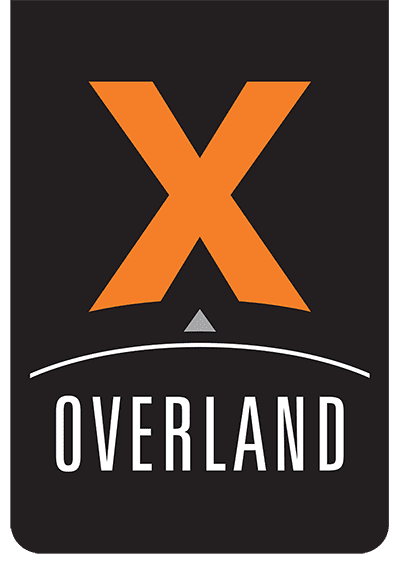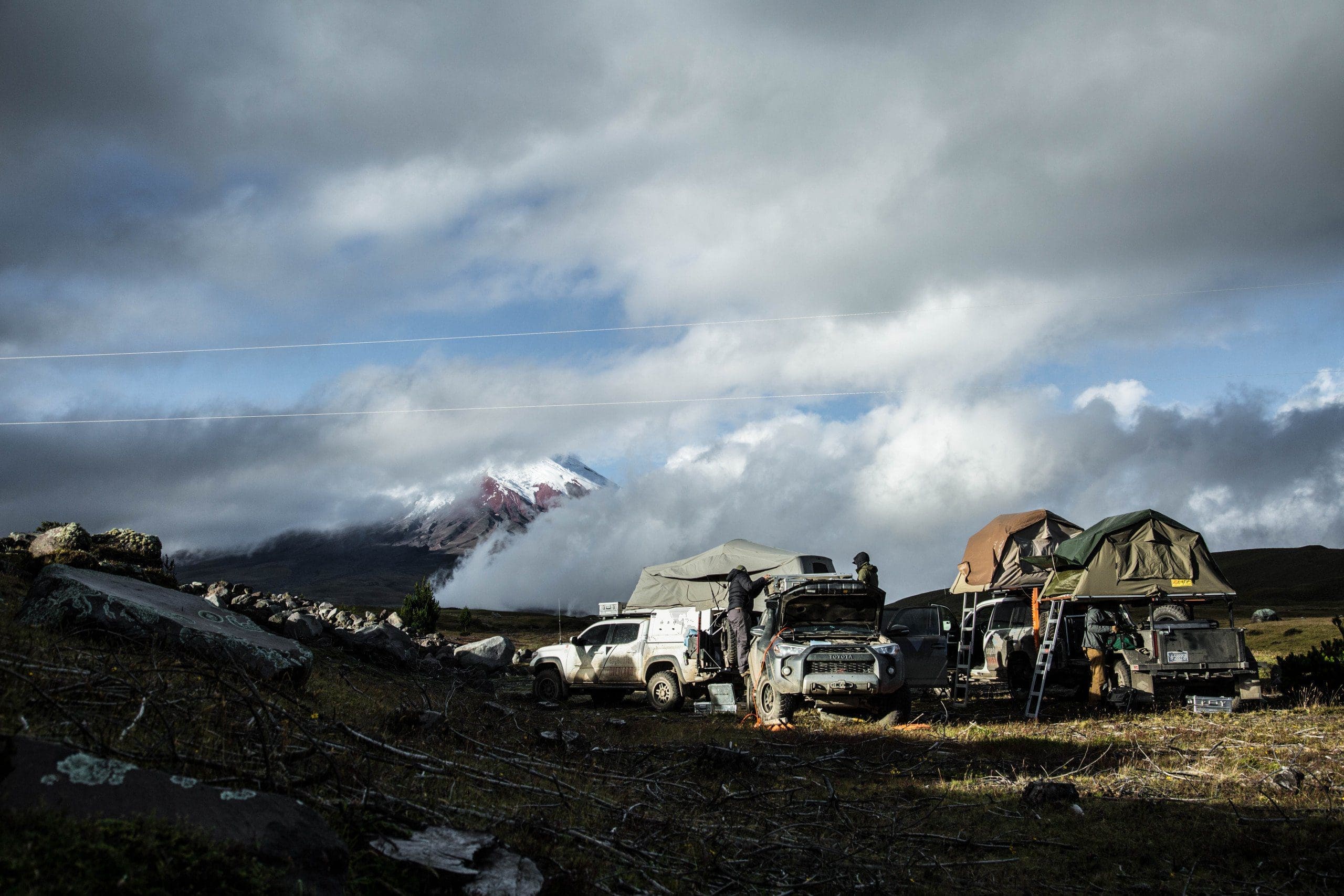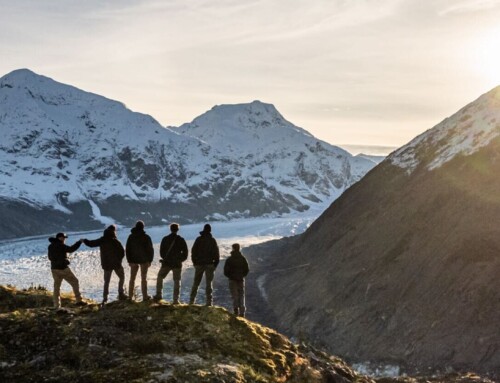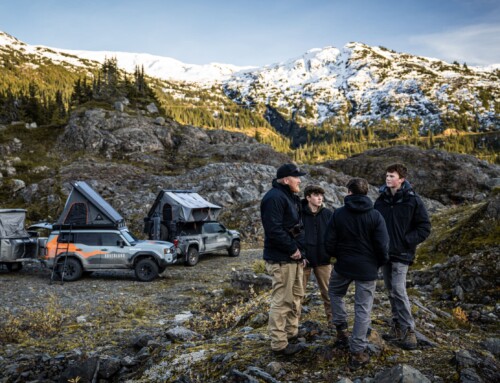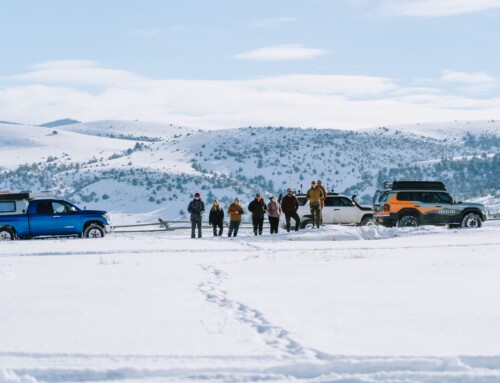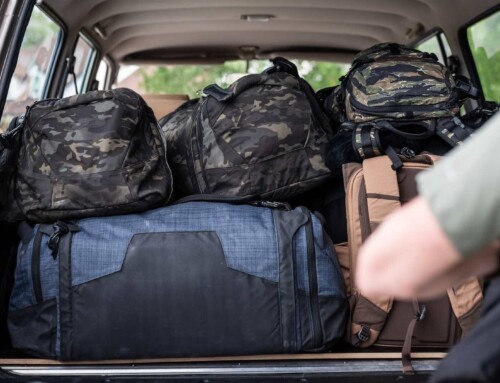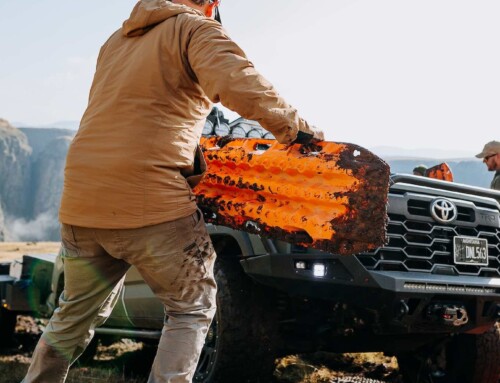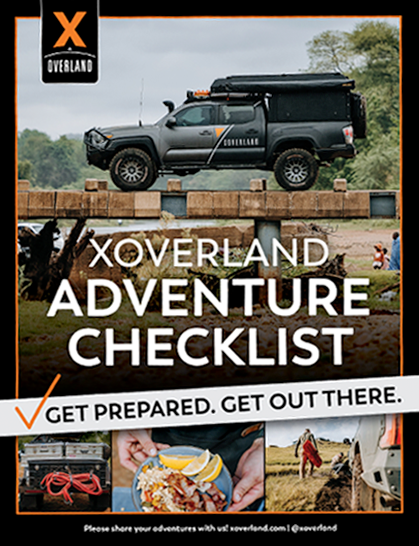
XOVERLAND’s attempt to define “overlanding” provides clarity for a variety of enthusiasts.
As “overlanding” continues to grow in popularity, people new to overlanding and even those who may currently see themselves as “overlanders” are often challenged to define what “overlanding” is exactly.
All of us here at XOVERLAND can empathize with those of you who are struggling to figure out the true meaning of overlanding in your desire to become an overlander.
Our goal is to provide some thought-leadership here, lest overlanding get conflated with other activities (awesome and legitimate in their own right) and so misunderstood and not fully appreciated for what it truly is.

Photography Credit: Scott Brady – Overland International, Expedition 7, Greenland Expedition
At XOVERLAND, it is our belief that there is value in staying true to an authentic definition of overlanding. Why? Because we believe becoming an overlander is something to aspire to, similar to, say, to becoming a mountaineer, if at present you are just learning how to Backpack or rock climb.

Photography Credit: Expedition Overland, Moab, Utah
Our history at XOVERLAND reflects this aspiration. From our earliest trips to Moab to the final stages in our journey of the Pan-American Highway, becoming overlanders has been a life-changing experience of exploration and personal growth.
In the spirit of encouraging others to venture down this path of becoming an overlander, we offer an interpretation of the term “overlanding” we believe to be honest and oriented toward maintaining the value of becoming an “overlander” so that all who embark upon the overland journey may experience the sense of fulfillment and personal growth unique to it.
Understanding What Overlanding Isn’t
Photography Credit: Richard Giordano, Southern California, USA
It is often said that if you seek to understand something, understand what it is not. So both to better understand overlanding and to better appreciate the activities and pursuits that often get confused with overlanding, let’s begin by looking at what overlanding is not.
Overlanding is not “Car Camping.” Car camping is a lot of fun and a great starting place on your path to becoming an overlander. Just like it sounds, car camping can be done via a conventional two-wheel drive vehicle, a “car.”
When car camping, one is usually traveling to a well-established campground easily accessible without the need for a four-wheel-drive or any specialized equipment.

Photography Credit: Brian Walthall, St. Anthony, Idaho, USA
The pleasure of car camping is that you can load up some camping gear, head to a campsite with family and friends, have some fun, and come home after a night or two.
Overlanding is not “Four-Wheel-Drive Touring.” Four-wheel-drive touring takes place when one sets out in a particular state, region, or even country to explore and tour the area via less developed roads with plans to camp in primitive areas far away from established campgrounds.
A well-equipped overlanding vehicle is perfectly suited to 4WD touring and many essential “hard” overlanding skills can be learned here; e.g., driving and recovery techniques.
What can’t be learned while 4WD touring through one’s own state, region, or home country are the “soft” skills of overlanding; e.g., learning how to navigate international border crossings, interact with and appreciate other cultures and peoples, and manage differences, often radical, in laws, regulations, and currencies.

Photography Credit: Expedition Overland, Guatemala
Overlanding is not “Off-Roading.” Off-roading or “four-wheeling” as it is often referred to, is technically a form of motorsport. One can have a blast going four-wheeling for the day and return home that night without the need for camping.
Four-wheeling is filled with challenges and, at the highest levels of the sport, heavily modified vehicles and driving skills unique to this pursuit are required.
Like car camping and 4WD touring, one can pick up skillsets while four-wheeling that will prove beneficial to overlanding.

Photography Credit: Expedition Overland, Glamis Dunes, California, USA
Overlanding is not “#Vanlife.” Vanlife is a lifestyle in which life out of a van is preferable to the high expenses and static nature of owning a house, apartment, condo, etc. Therefore, it is likely to find that most people leading a van life lifestyle are not overlanding. Yet, it is possible to go overlanding in a van. See the difference?
Overlanding is not “RVing.” Like vanlife, it is possible to go RVing while never leaving one’s own country or even state. It is also possible to use an RV to travel across international borders. Once international borders are crossed while RVing the distinction between overlanding and RVing becomes overlanding’s emphasis upon travel in remote areas with primitive campsites unsuitable to an RV or even, in extreme cases, a van.
Overlanding is not “Road Trippin.” The “road trip” is a long-standing iconic American tradition famously written about by Jack Kerouak and immortalized in song by The Red Hot Chile Peppers, but a road trip is not overlanding.
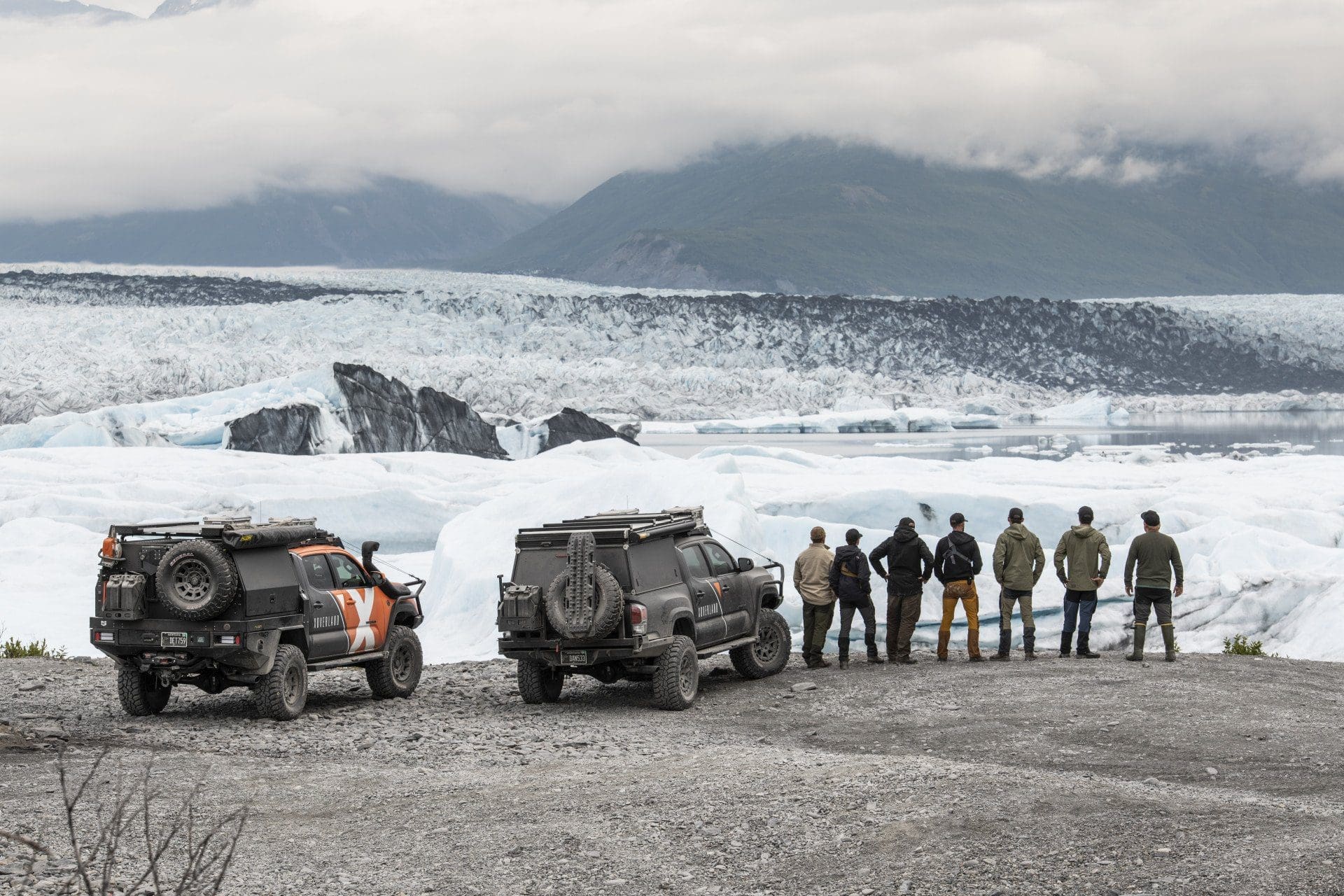
Photography Credit: Expedition Overland – Knik Glacier, Alaska, USA
Here’s why: A road trip can be taken from one’s hometown to a destination a few hours away or it can involve extended travel across the country, but it doesn’t necessarily involve camping, an emphasis upon traveling through remote areas, or the crossing of international boundaries.
Therefore, while super-fun and a gateway into adventure travel, a typical road trip cannot be called overlanding.
So What is Overlanding?
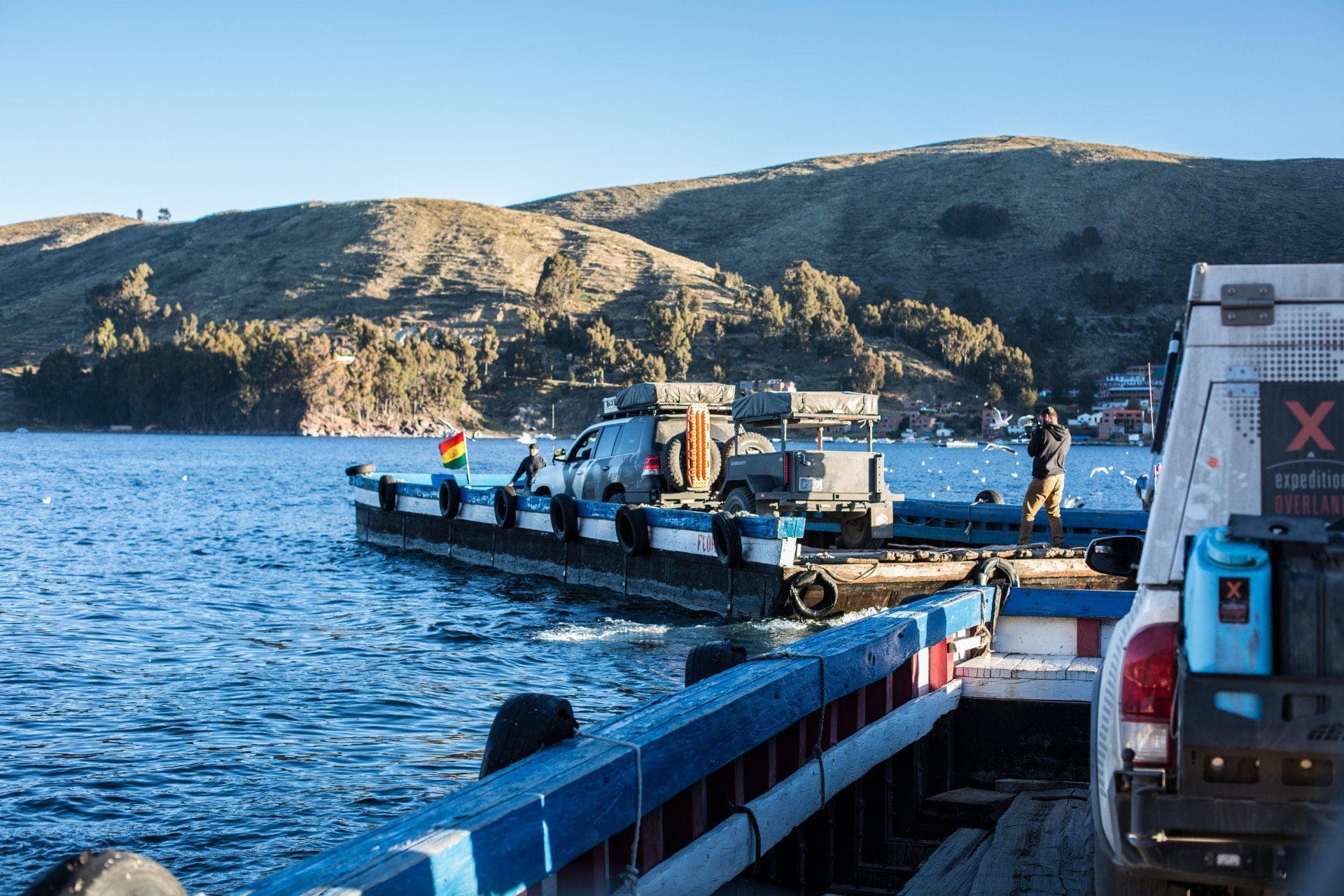
Photography Credit: Expedition Overland, Bolivia
Now that we have an understanding and appreciation for everything overlanding is not, let’s take a look at what overlanding is so we can better appreciate this unique form of travel and adventure.
At XOVERLAND, our working definition of the term “overlanding” is that which has been curated by Scott Brady at Overland Journal:
Overlanding describes self-reliant adventure travel to remote destinations where the journey is the primary goal. Typically, but not exclusively, accommodated by mechanized off-highway capable transport (from bicycles to trucks) where the principal form of lodging is camping; often lasting for extended lengths of time (months to years) and often spanning international boundaries.
To assist people in determining whether or not they are, in fact, overlanding, Overland Journal suggests asking yourself the following questions:
1. Am I traveling remotely?
2. Am I experiencing a culture unique from my own?
3. Am I visiting an under-explored or under-documented region?
4. Am I traveling self-supported in unfamiliar territories for multiple days, weeks, months, or years?
While it is possible to answer “yes” to all of the above questions while still remaining within the borders of one’s country, at XOVERLAND we believe the international aspect of overland travel is needed to make the overlanding experience authentic.

Photography Credit: Expedition Overland, Cotopaxi, Ecuador
Once borders are crossed, the adventure that is overlanding really begins. Heading south on the Pan-American Highway with a dream of reaching Ushuaia means you will be traveling through many countries that lack the infrastructure of highly developed nations like the United States or Canada.
While having this kind of overlanding experience, these are some of the challenges you will likely face:
– Communications issues due to language barriers
– Extreme cultural differences
– Corruption and the need to deal with bribery
– Limited technology access and cell phone capability
– A lack of infrastructure to deal with emergencies and vehicle breakdowns
– The need for sustained resource management: food, water, hygiene, vehicle maintenance
-The need for time and distance charting
– Extreme difficulty in finding potable drinking water
– The need for advanced navigation skills
– The skills to manage long term finances while traveling internationally
All of the above pertains to the “self-reliant,” “remote areas,” and “crossing international borders” elements of the definition of overlanding. These aspects of overland travel are not theoretical; they are the reality of the experience. In our opinion, these extremely challenging and edgy aspects of overlanding are what make it so exciting and so different from touring within the boundaries of a singular well-developed nation.
With all of this in mind, we ultimately wish to inspire others to become overlanders by reaching to realize the dream of overlanding. We have experienced this journey and believe it to be worth taking.

Photography Credit: Expedition Overland, Punta Mariato, Panama
The Heart and Mind of an Overlander
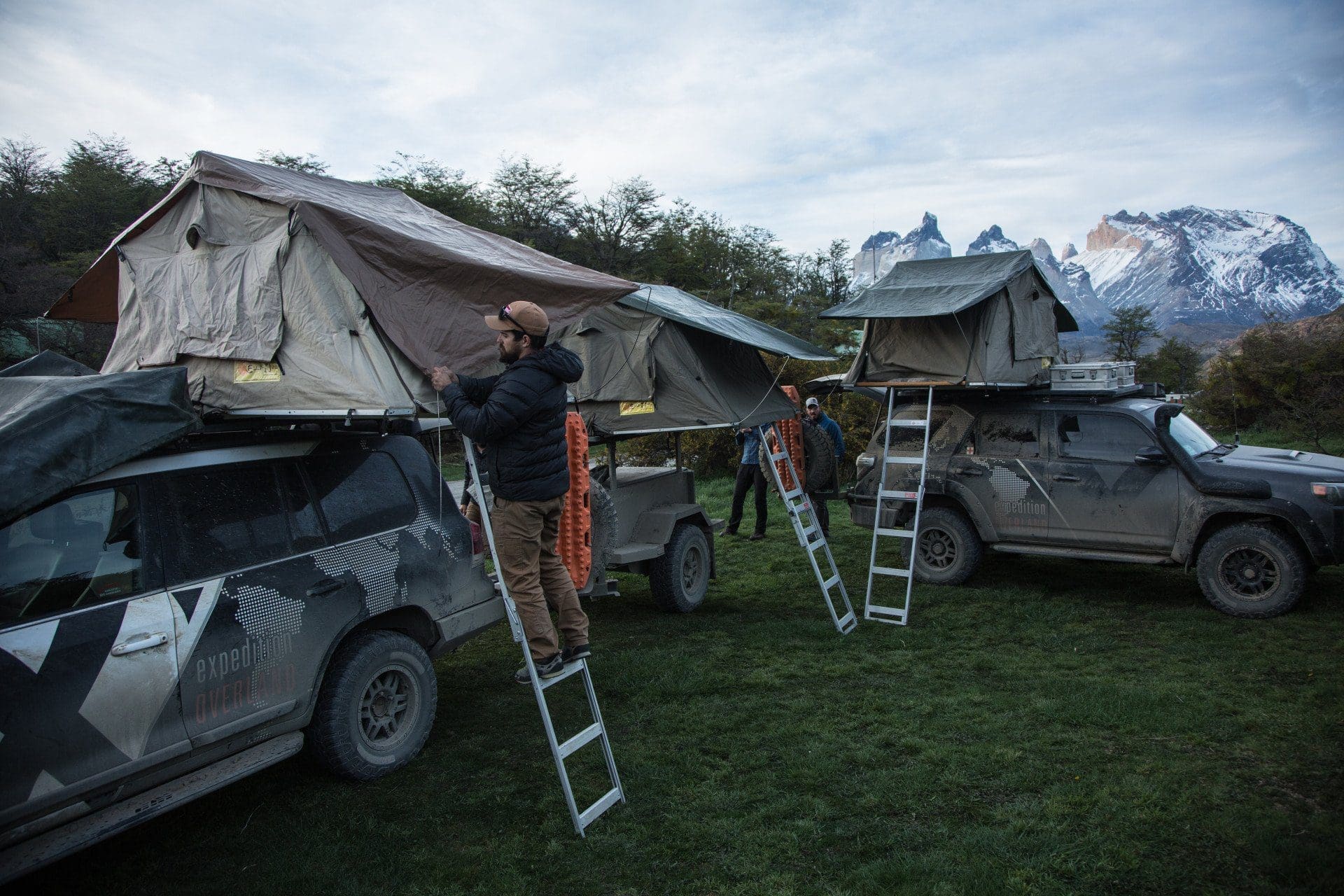
Photography Credit: Expedition Overland, Patagonia, Torres del Paine, Chile
Since completing our epic Pan-American overlanding journey in 2017, we have gone on many adventures in which we have utilized our vehicles and skills even though we were not “overlanding.” (This can be seen in our Overlander series.)
While you may not be, technically speaking, “overlanding,” it is still possible to practice these principles in all of your journeys, pursuits, and adventures. Similarly, you can use an overlanding vehicle to enrich and enable more of what you do.
The same overlander mindset that allows you to appreciate different people, places, and cultures from around the world will allow you to better appreciate the subtle differences within your own state or country.
The increased capabilities of a well-built overlanding vehicle will allow you to explore farther on all of your outings and enjoy the amenities of an efficient and functional camp.
The Overlander’s Mindset
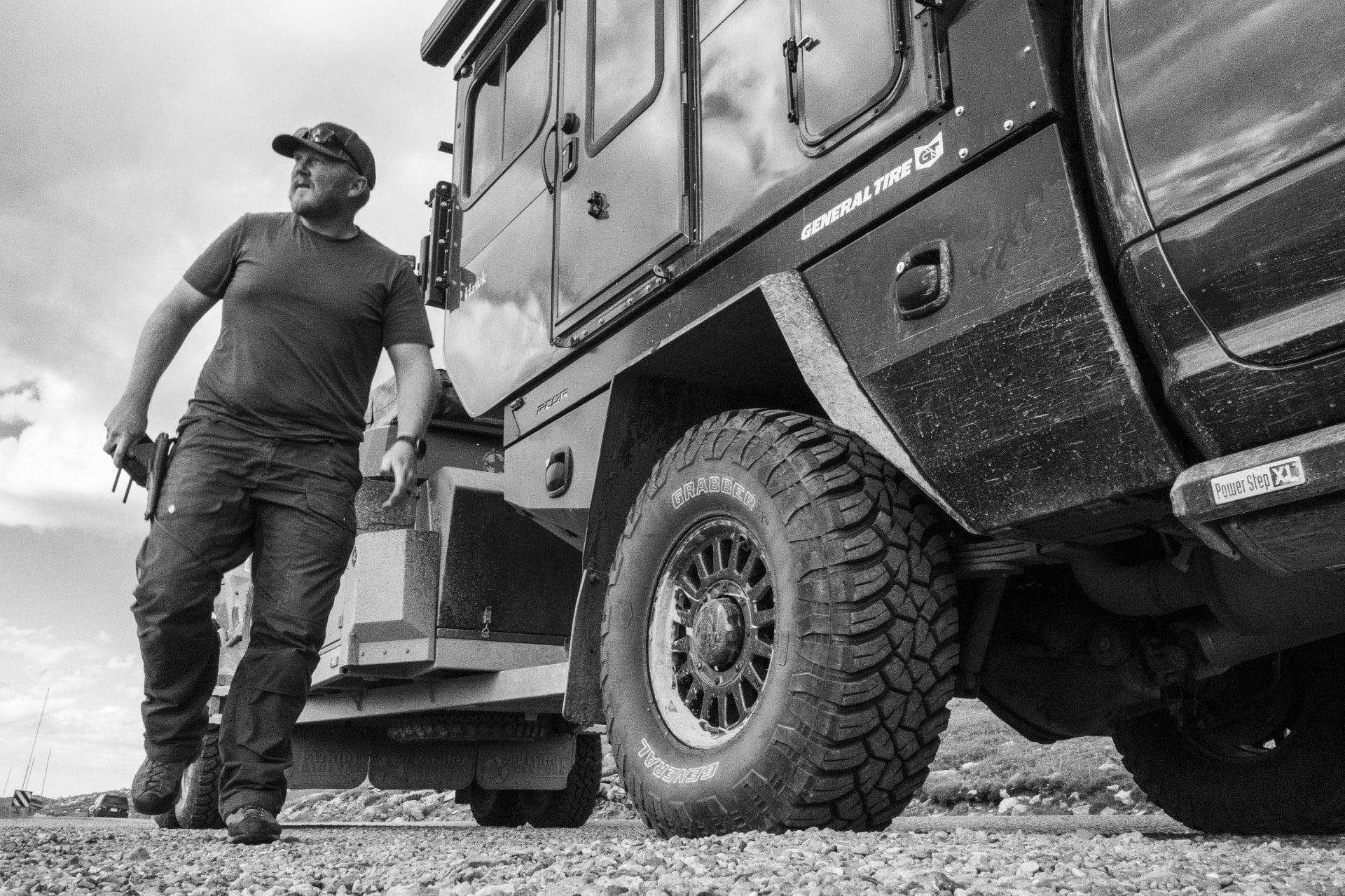
Photography Credit: Expedition Overland, Montana, USA
If you have yet to go overlanding and aspire to, time at home can be spent developing both an overlanding vehicle and, most importantly, an overlander’s mindset.
Along with having fun building out a vehicle, begin enjoying the pleasures of building out your mind as well. Spend time reading books and watching films written and created by overlanders while learning all that you can.
Further educate yourself about the world in which you wish to travel. In particular, research and study the countries and places you’d most like to explore.
Finally, work on developing a mindset that appreciates challenges and obstacles, adventure, and the rich variety of humanity and culture that exist around the globe.

Photography Credit: Expedition Overland, Sea of Cortez, Altar, Mexico
Be Inspired
We’d like to wrap up by saying don’t sweat the details and definitions. What is most important is to be inspired, get out there, learn, grow, and have fun on your path to becoming an overlander!
Somewhere along the trail, you may find a personal definition of overlanding that works just right for you. Consider what we have offered here as a useful guidepost to help mark the way.
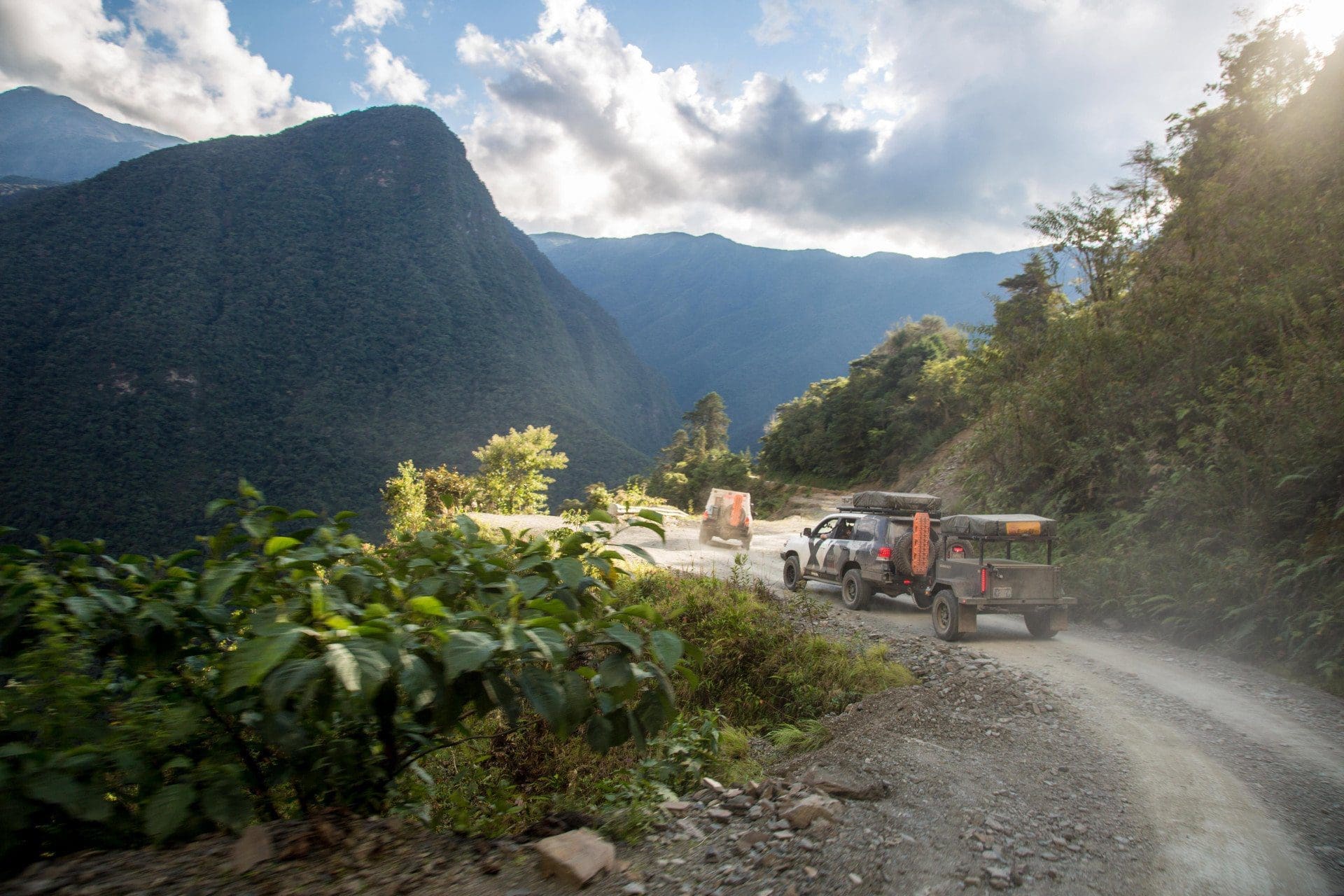
Photography Credit: Expedition Overland, Death Road, Bolivia
